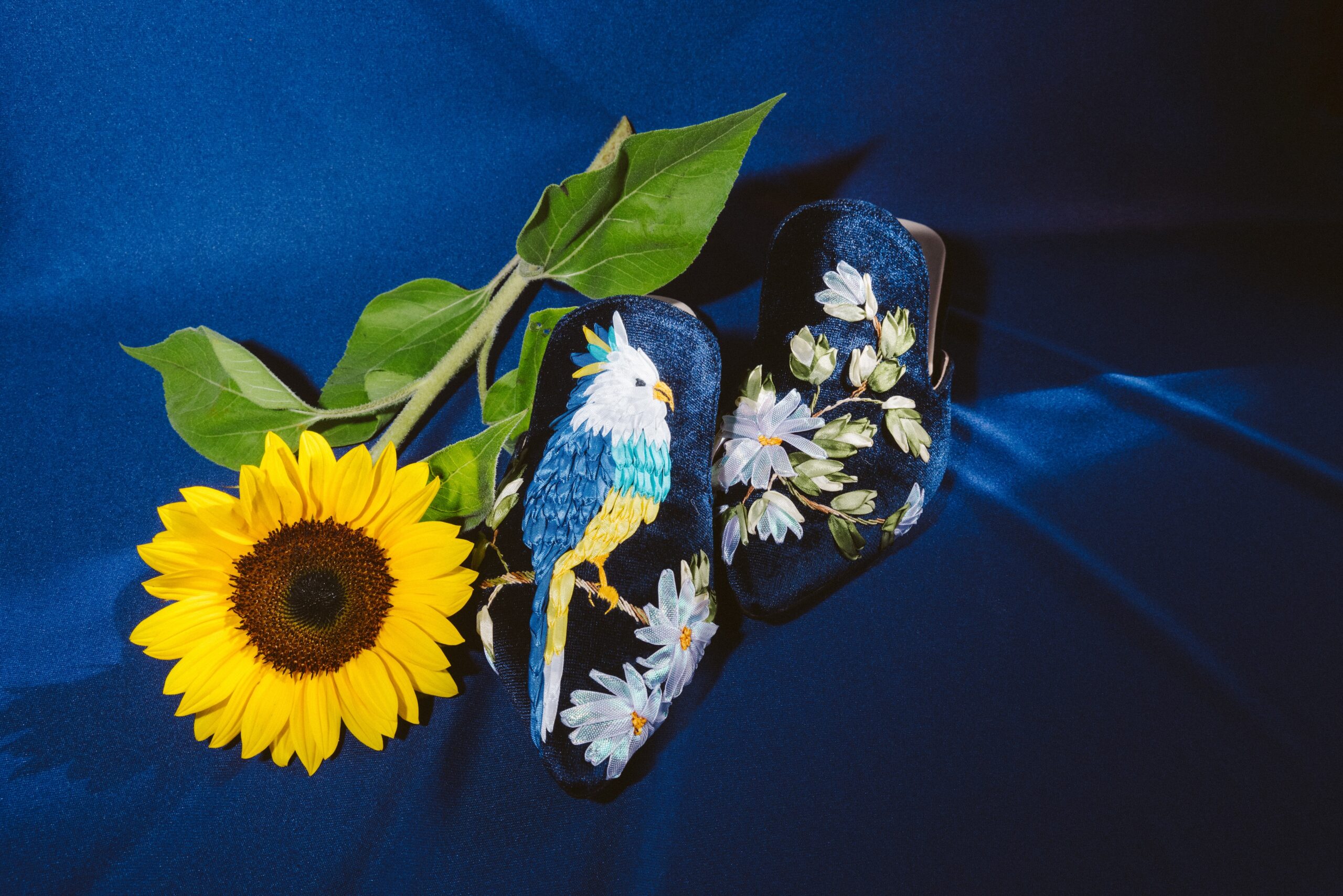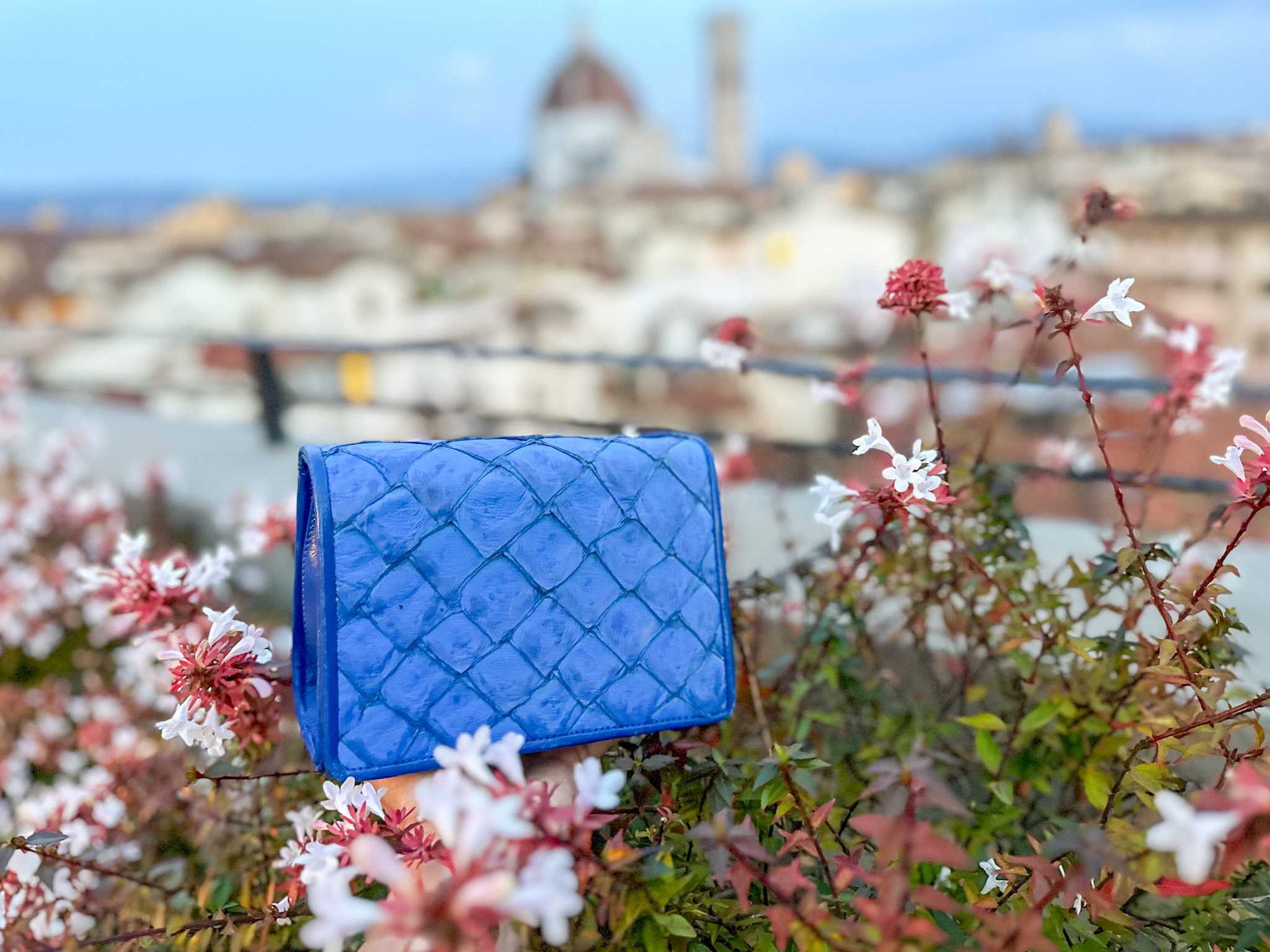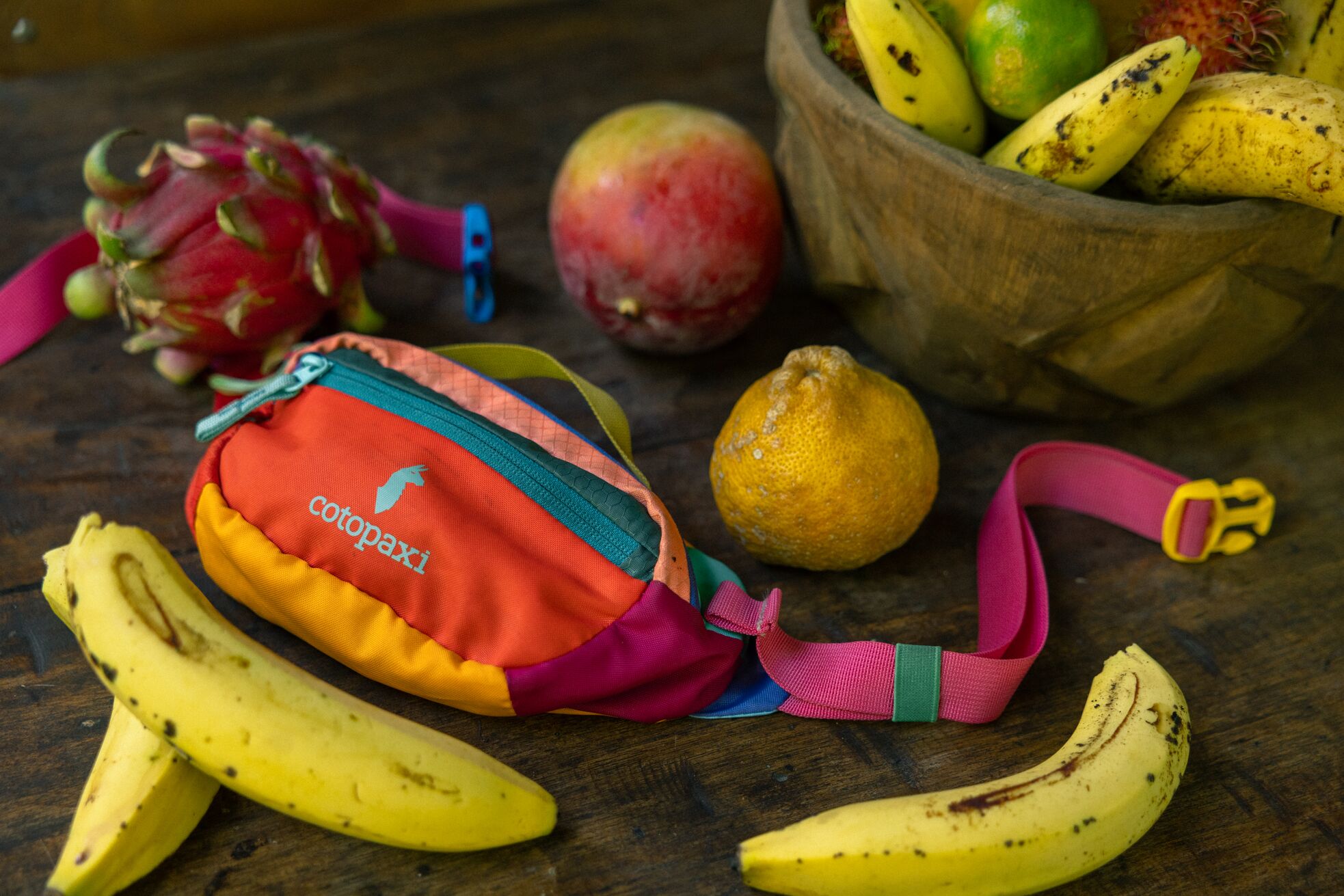NORTH STARS:
Heritage Value
Gender Equality
Diversity & Inclusion
“Every embroidered visual story, the design centrifuge of every Anatolian Craft slipper, is created by women in Anatolia with a talent for hand-embroidery who have achieved economic independence outside the home through employment.”
An Anatolian Craft shoe is almost too beautiful to wear. Made from historic kutnu fabric– once worn by the Ottoman sultans–and hand-embroidered by female artisans in Anatolia in a visual whirl of fauna and flora, the slippers are modern heirlooms compatible with any outfit. It’s no wonder Bilge Can founded the brand.
The idea for the company started with a pair of heritage slippers that belonged to Can’s mother. Can, with her daughter Begüm Can Öcal, launched Anatolian Craft in 2016 with the aim of reviving the ideal of apparel not just meant to last but worthy of being passed down from one generation to the next. And so, no two Anatolian Craft shoes are the same because of an intricate production process, which has become rare in a time where fast fashion rules.
The materials used for the shoes are locally and ethically sourced, including the soles, insoles and lining made from genuine leather. The embroidered surfaces are either composed of velvet or kutnu, a natural blend of cotton and silk, which is produced by artisans in Gaziantep through a meticulous weaving process that hasn’t changed through the centuries. After a design has been drafted by Bilge Can herself, an embroidery prototype is created with a master artisan for testing.
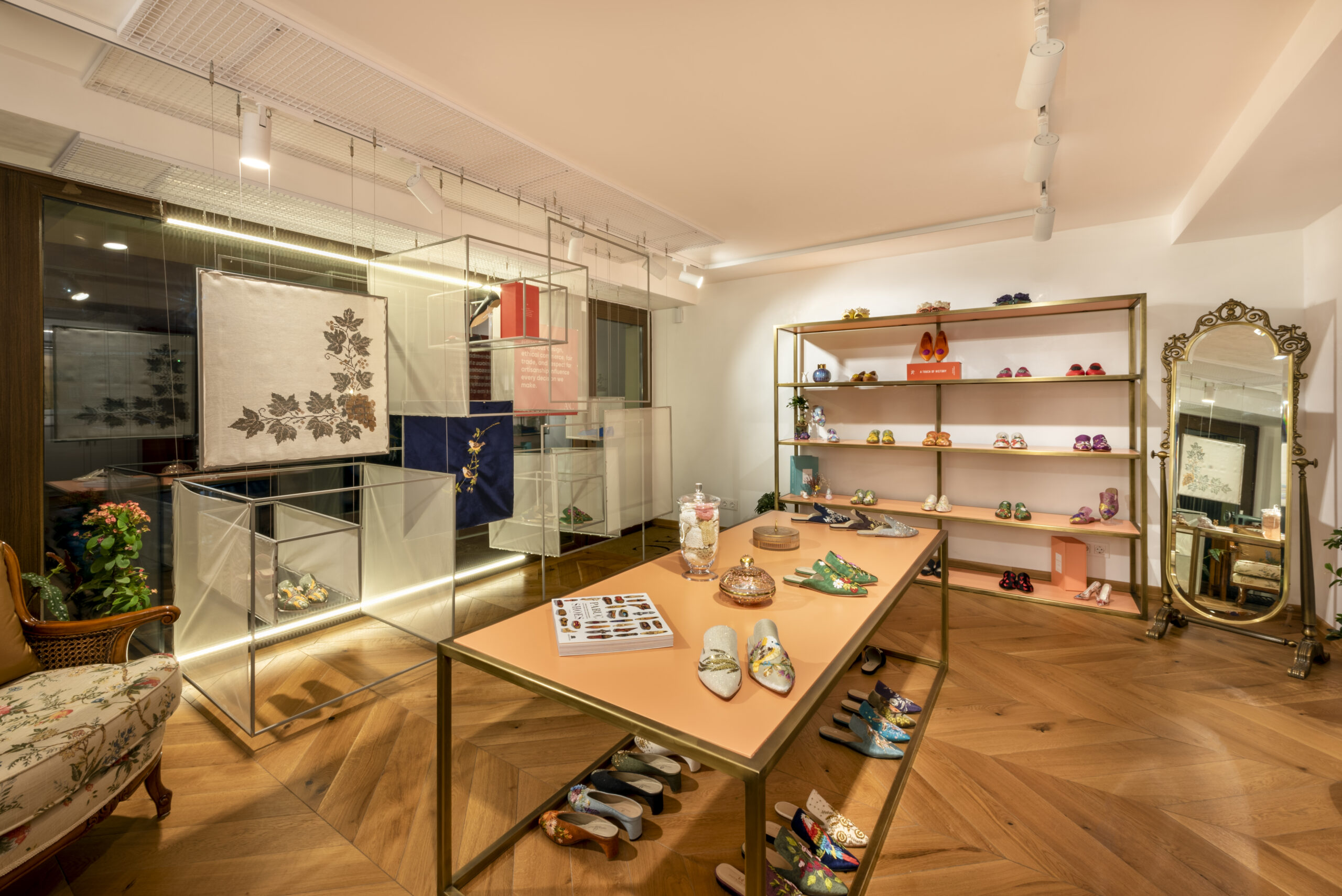
Anatolian Craft showroom. Image courtesy of Anatolian Craft.
Once a shoe has been ordered, the process of hand-crafting and hand-embroidering is set into motion. Every step is completed by different artisans. Every product requires around seven to twenty working days to complete, depending on the complexity of the design. When the final product emerges, what ends up striking the eye first is the minute embroidery, and it is here that Anatolian Craft’s story evolves from sustainable to empowering.
Every embroidered visual story, the design centrifuge of every Anatolian Craft slipper, is created by women in Anatolia with a talent for hand-embroidery who have achieved economic independence outside the home through employment. With a motto which states that, “a woman can transform a family, and a family can transform a community,” the mother daughter team currently partners with around 33 women in Eastern Anatolia, providing them with fair wages while allowing them to work from home to manage their lives and families. The aim is to grow, to support many more communities in all of Turkey’s 81 cities.
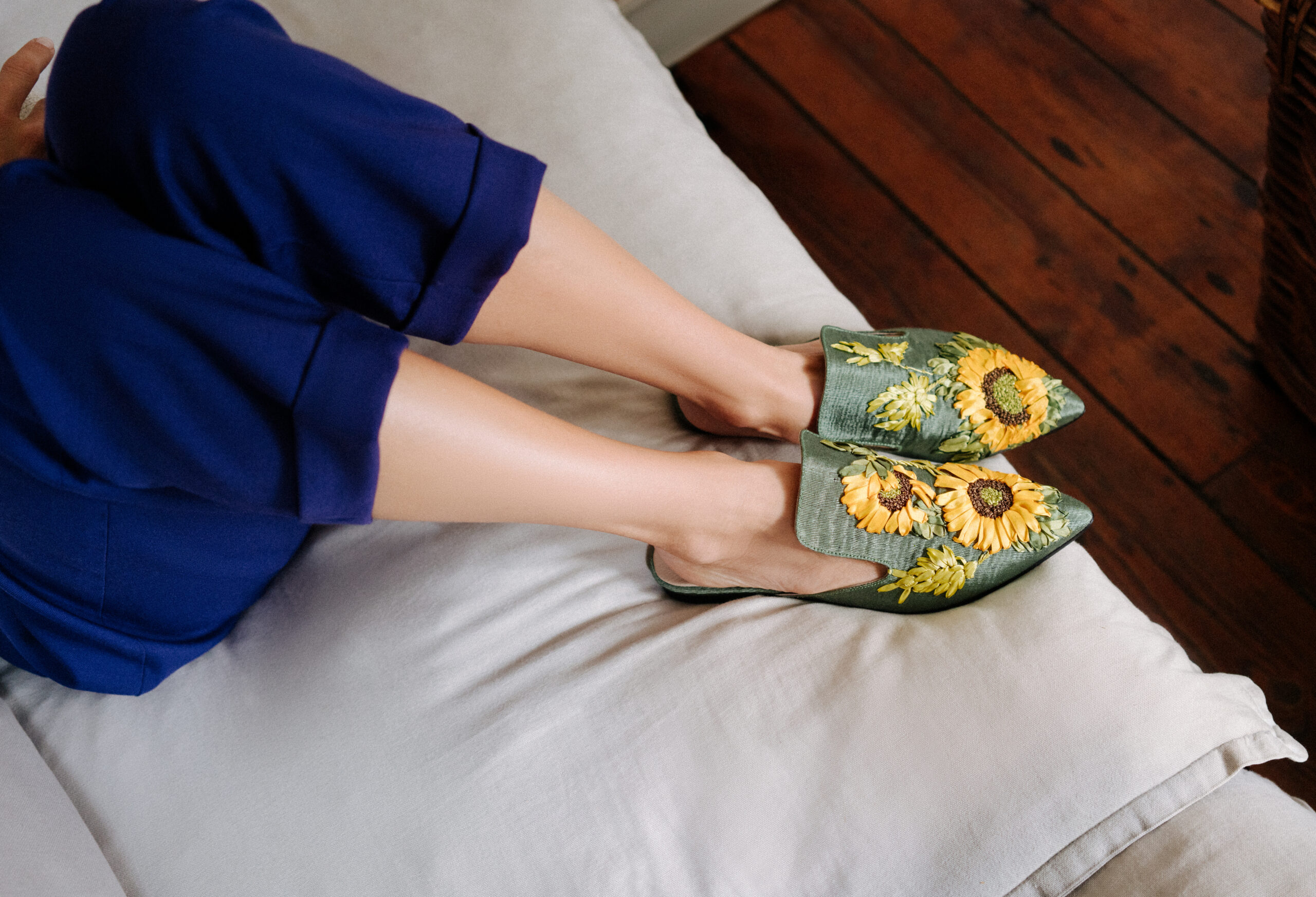
Heritage designs by Anatolian Craft. Image courtesy of Anatolian Craft.
Through the beautiful confluence of traditional Turkish hand embroidery and modern design, the brand has also helped prevent the extinction of traditional handicrafts, ensuring its transfer to future generations. An important part of Turkish cultural heritage, hand-embroidery, like a lot of traditional handicrafts, is facing an uncertain future with a lack of economic incentive and disinterest among the younger generations of learning and continuing the laborious form of hand craftsmanship. By making embroidery relevant once more through modern designs sold as a couture in Turkey as well as internationally, motivation has been rekindled, not only for women who are already skilled in this craft, but for future generations to learn and become similarly independent through their skills.
In Istanbul’s Koşuyolu neighborhood on the Asian side, on a quiet residential side-street far away from the touristic attractions and humdrum of a giant city, Can greets guests in person in the Anatolian Craft showroom. The elegant yet sincere space sits on the ground floor of her home, her apartment upstairs. Her mother’s antique furnishings and the modern displays of the brand’s shoes and accessories strike a harmonious balance, much like Istanbul itself, where the past and present continuously live side by side. Her creations exude her life and this city, a precious object to be worn for many years, made with care and expertise, diligently and with skill, carrying with it a bit of history, a bit of modernity and a lot of creativity and love.

Custom designs by Anatolian Craft. Image Courtesy of Anatolian Craft.
North Stars: Diversity & Inclusion, Gender Equality, Heritage Value

Feride Yalav-Heckeroth has been writing about contemporary culture in Turkey since 2012. Her work has been published in Kinfolk, Wallpaper*, Brownbook, The Travel Almanac, CNN Travel, Conde Nast Traveler and Travel + Leisure. She’s also the author of her own guidebook, The 500 Hidden Secrets of Istanbul. Find more of her work in her portfolio or follow Feride on IG @fyheck.


